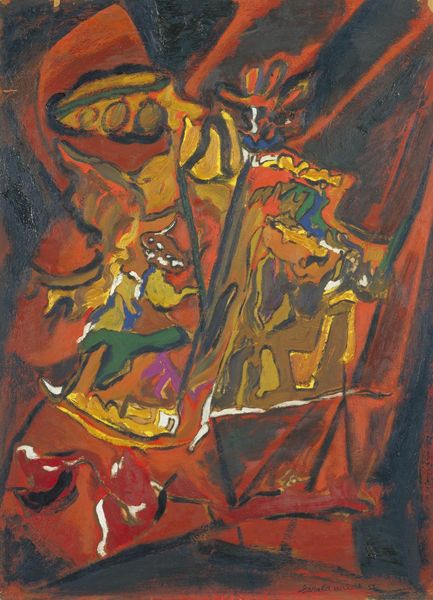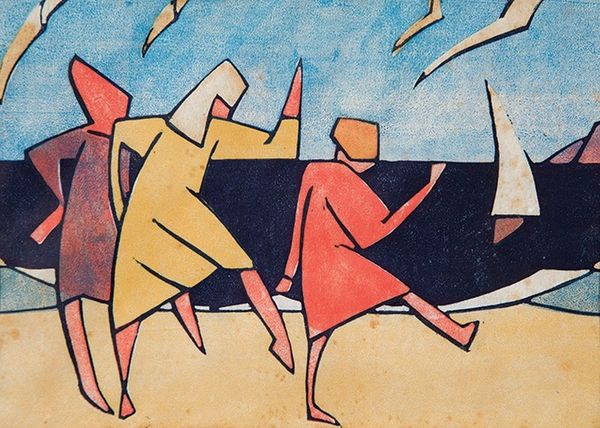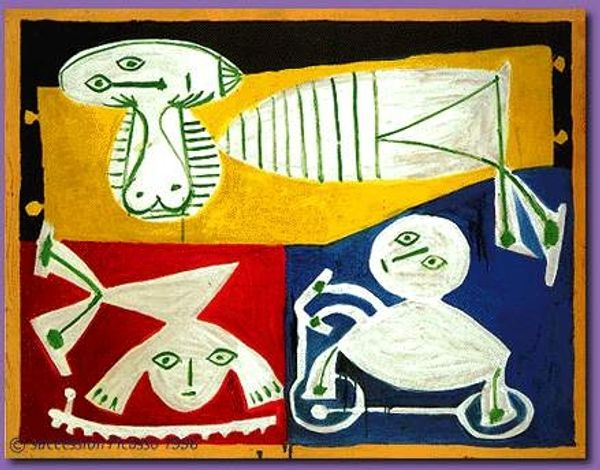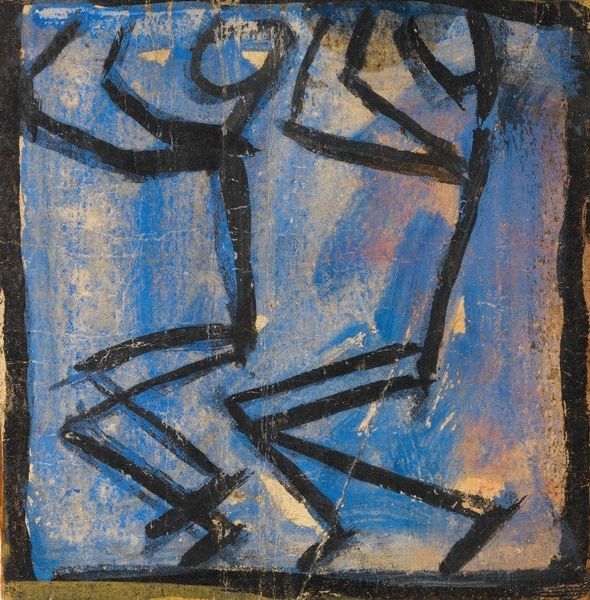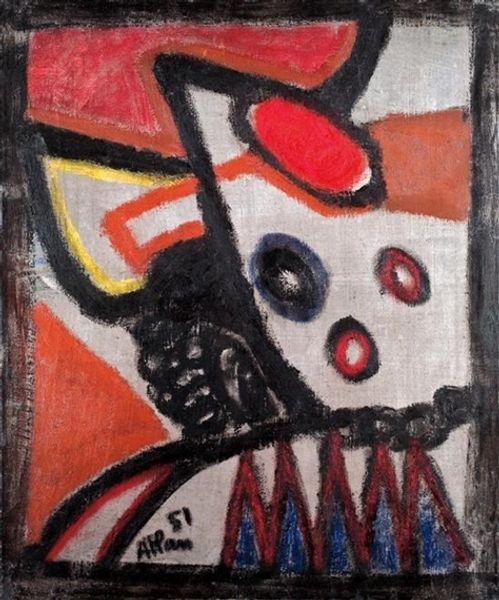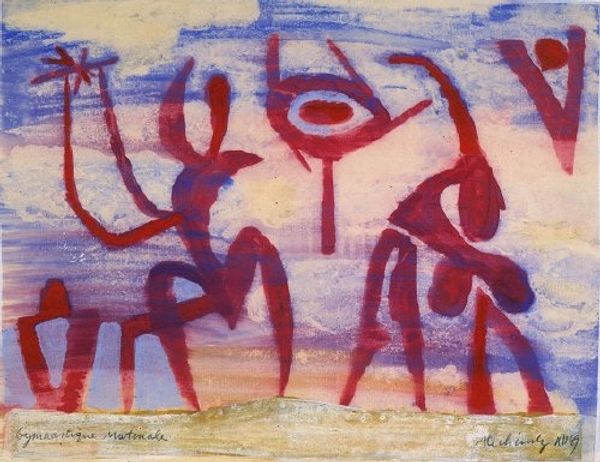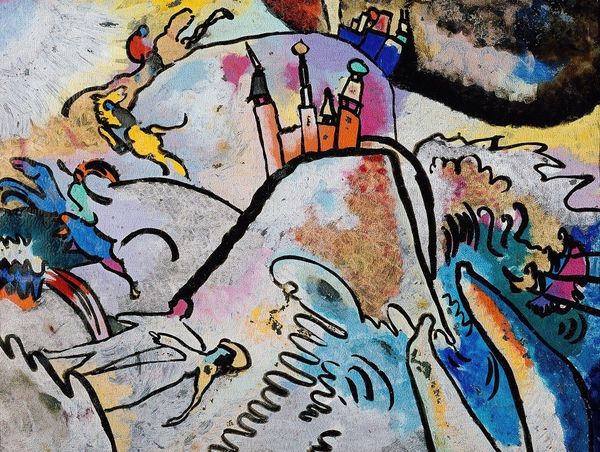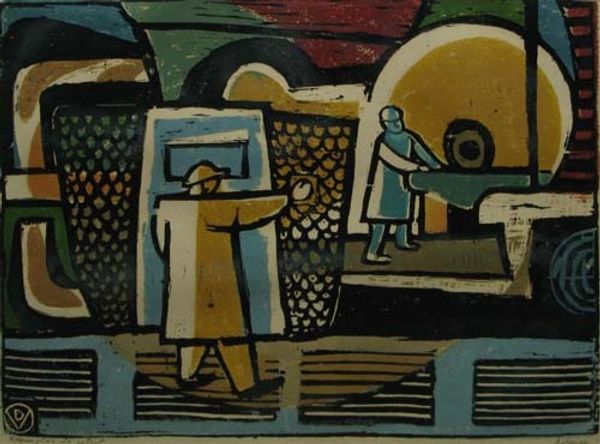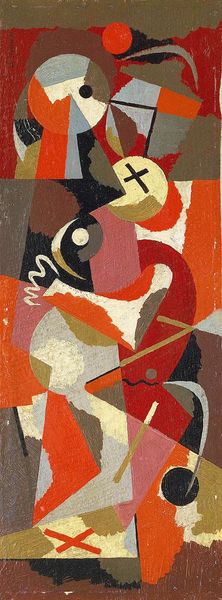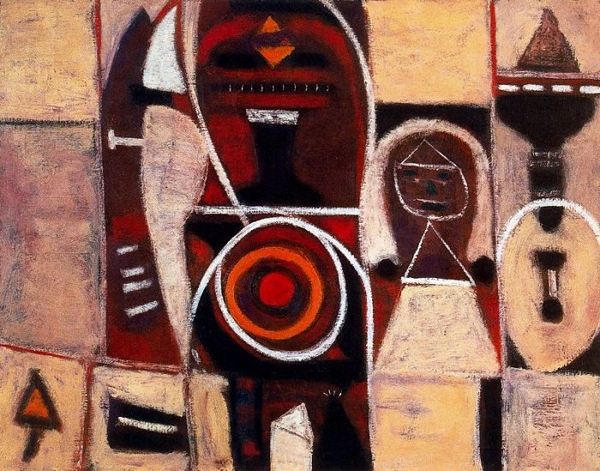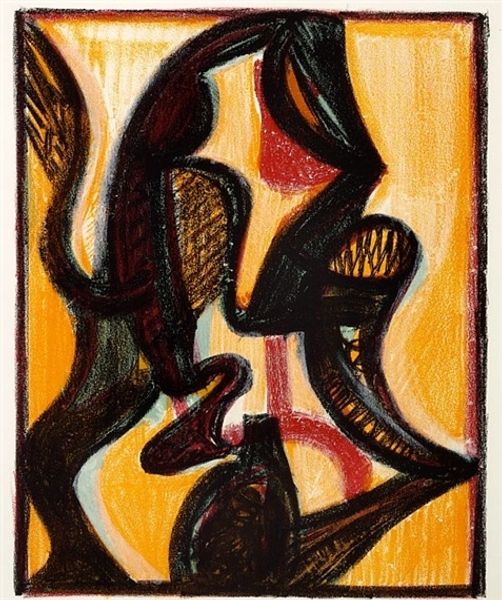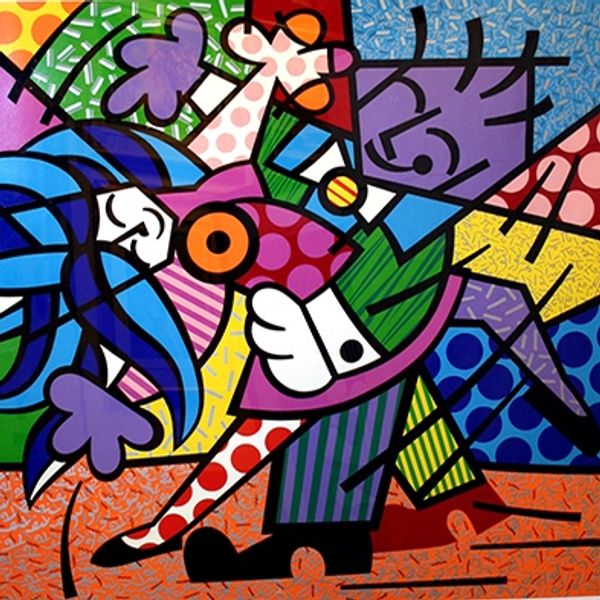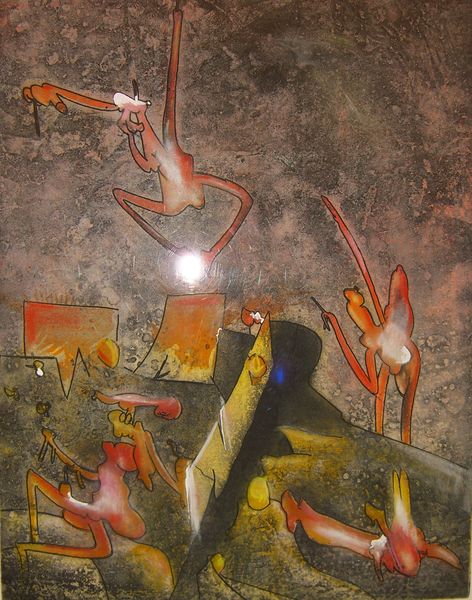
Dimensions: 20.3 x 25.8 cm
Copyright: Public domain
Editor: This is Arshile Gorky's "Battle at Sunset with the God of Maize (Composition No. 1)," painted in 1936, and it looks like acrylic on canvas. I am struck by how raw the texture seems. What’s your read of the work? Curator: What immediately grabs me is the surface. Gorky's application of acrylic—consider the labor, the repeated strokes – creates this almost brutal physicality. It defies the illusionism we often associate with painting, and seems almost self-consciously artificial. How does the title itself—"Battle at Sunset with the God of Maize"—impact your understanding of that artificiality and the labor within it? Editor: It’s strange, right? "God of Maize" hints at the earth, agricultural labor, but the abstract shapes make it hard to find any literal connection. It feels like the materials and process are clashing with any representational meaning. Curator: Exactly. Consider Gorky's context. He immigrated to America fleeing political violence and sought refuge through abstract methods. In a sense, he might be grappling with a forced movement between one landscape and another, processing social trauma, political history, and the idea of commodity production using the materials at his disposal. The painting becomes less about representing and more about *doing*. Editor: So it's less about illustrating a specific battle and more about the labor of painting itself being a kind of battle, using the means at hand. The making *is* the meaning. Curator: Precisely. We see him experimenting, almost fighting with the materials. We understand art as labor. How the materials and what one does with them communicates far more than mere imitation ever could. Editor: I never considered the idea of "battle" being literal, that his process was his meaning. It's great to examine how a cultural context meets labor and how it turns into something new. Thanks for pointing that out. Curator: Absolutely! It pushes us to reconsider the boundaries of “high art,” forcing us to contend with the sweat and social struggles behind any work of creation.
Comments
No comments
Be the first to comment and join the conversation on the ultimate creative platform.
